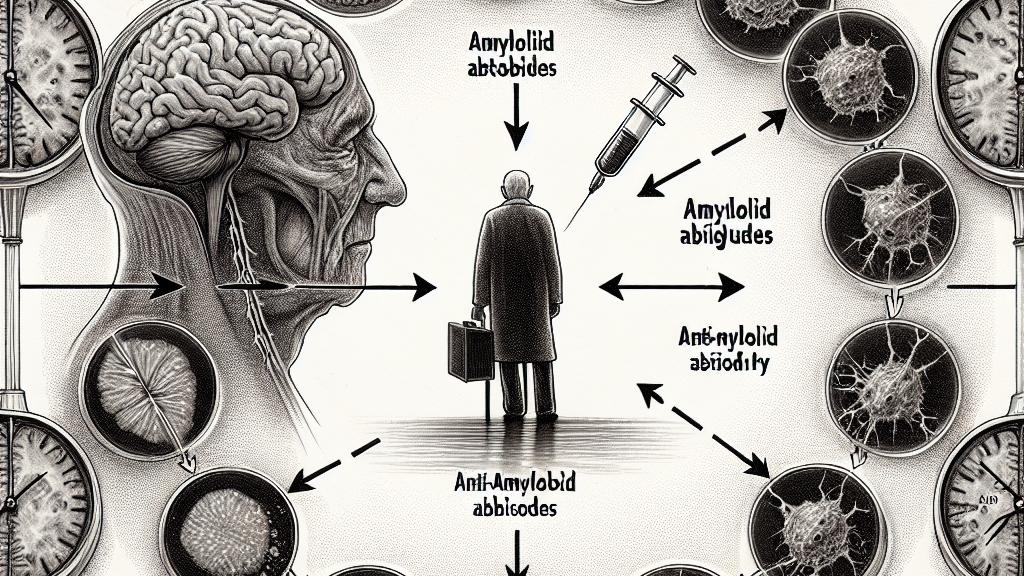2021: The Journey of Anti-Amyloid Antibodies in Alzheimer's Treatment
Overview
- Anti-amyloid antibodies symbolize a revolutionary strategy in the fight against Alzheimer's by specifically targeting and removing harmful amyloid plaques in the brain.
- While scientific advances raise hopes, the journey to clinical acceptance has been riddled with challenges, skepticism, and mixed patient outcomes.
- Continuous research and clinical trials remain crucial for ascertaining the safety, effectiveness, and potential of these therapies to transform the lives of those affected by Alzheimer's.

Understanding Alzheimer's Disease
Alzheimer's disease, a debilitating form of dementia, primarily afflicts older adults, manifesting in a gradual but relentless decline in memory, reasoning, and daily functioning. It progresses through several well-defined stages, beginning from preclinical symptoms—an elusive phase where changes in the brain occur without noticeable signs. For example, advanced imaging techniques can detect amyloid plaques years before a patient shows any cognitive symptoms. By precisely targeting these plaques with anti-amyloid antibodies, researchers aim to halt the disease progression early on, offering significant hope to patients and caregivers alike. This early intervention strategy emphasizes the need for heightened awareness and understanding of Alzheimer’s stages to facilitate timely medical responses.
Challenges in Treatment Development
The introduction of anti-amyloid therapies has sparked both excitement and skepticism within the scientific community. Initial trials have shown a mix of results; while some patients experience notable cognitive improvement, others face hiccups such as amyloid-related imaging abnormalities (ARIA)—dangerous side effects that can complicate treatment. For instance, participants in clinical trials have reported a range of experiences: where one group notes substantial memory enhancements, another group expresses concern over cognitive side effects. This dichotomy emphasizes the complex nature of Alzheimer's treatment development and indicates a necessity for ongoing evaluation. In fact, every trial sheds light on the multifaceted interactions between patient responses and therapeutic efficacy, amplifying the importance of thorough research protocols.
The Future of Alzheimer's Treatment
Looking ahead, the horizon for Alzheimer's treatment is illuminated with promise, thanks to relentless innovation. Exciting advancements in technologies, such as sophisticated brain imaging and emerging biomarkers, are refining early diagnosis capabilities incredibly. Additionally, clinical trials represent a beacon of hope, as they not only evaluate anti-amyloid therapies but also explore synergistic treatment combinations targeting multiple pathways of the disease. For example, recent studies are investigating the effects of pairing anti-amyloid antibodies with lifestyle interventions that promote cognitive health. Such efforts not only underscore the vital role of participants in shaping the future of Alzheimer's care but also highlight a collective dedication to finding impactful solutions. Ultimately, as scientific inquiry continues to expand, there is a renewed sense of optimism among researchers and families grappling with Alzheimer's, fostering a collaborative spirit in the fight against this formidable condition.

Loading...